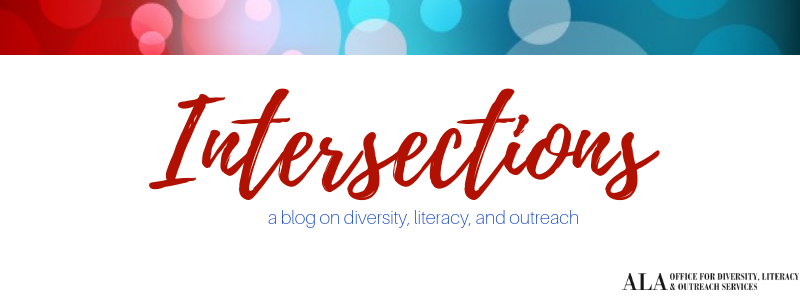
By: Rhiannon Sorrell, Instruction and Digital Services Librarian, Kinyaa'áanii Charlie Benally Library
Every year, ALA puts out a call for project proposals for the Emerging Leaders Program (EL), a leadership development program for professionals in their first five years in the librarianship field. For the 2018 cohort of Emerging Leaders, AILA submitted a proposal, “Tribal Libraries, Archives, and Museums of the United States Directory & Interactive Map,” which was shortlisted as one of many project options for the incoming group professionals.
The goal of this project was to produce a digital resource that highlights U.S. tribal libraries, museums, and archives with the greater ALA community. This digital resource would also act as an advocacy tool and historical resource for the American Indian Library Association (). It was the project of choice for five library workers from across the country who made up “Team B”. In the four months between the ALA Midwinter and ALA Annual, the team created an online resource map to serve as a visual resource of Tribal Libraries, Archives, and Museums (TLAMs) in the United States and the resource is currently  housed on AILA’s website. The team has continued to work and present on this project beyond the Emerging Leaders program wrap-up date in June.
housed on AILA’s website. The team has continued to work and present on this project beyond the Emerging Leaders program wrap-up date in June.
Join us as we get to know this fabulous team of library workers.
Question: Tell us about yourself.
Aisha Conner-Gaten (ACG): I'm a Chicago-born West Coaster teaching with tech and promoting intersectional activism in information work.
Netanel Ganin (NG): I'm a cataloger with a cat. I'm passionate about interrogating our cataloging and metadata systems and their implicit assumptions about knowledge organization.
Garrison Libby (GL): I'm a reference and instruction librarian at a community college in Virginia with a strong interest in open access, OER, and affordable education.
J.L. Colbert (JLC): I’m the current Resident Librarian at the University of Utah. I’m a big metadata nerd whose research focuses on the relationship between language and power in descriptive metadata, as well as the question-formation process and information-seeking behavior.
Question: What was your favorite part of this project?
ACG: In addition to collaborating with this team, learning more about Indigenous knowledge systems and talking with tribal members about their experiences.
NG: I think my favorite part was getting to meet such capable, and driven people in AILA and the EL program. I felt like I was contributing to something that would out-live me.
GL: For me, it was getting to work on a project with impact -- making a tool that will be useful and hopefully raise awareness of tribal institutions. Along with that, getting the opportunity to work with AILA and tribal members and meet some of the incredible people that make all of this happen.
JLC: Simply creating something that filled a need and was helpful to people was huge, especially considering all the work we did to earn the trust of the tribal libraries.
Question: Tell us about your role and contribution to the project.
ACG: I helped develop the survey to collect the institutional data as well as send the survey out. Each of us also took turns with project management including leading meetings, sending follow-up communications, checking in, and designing our reports and presentations.
NG: My biggest contribution was probably in the beginning when I transcribed names and the contact information of institutions from print directories.
GL: My main role was building the map and website pieces of the tool. After the data was collected, I began assembling that on the map itself and built the website to highlight what we found.
JLC: I worked with Garrison plotting the libraries on the map, as well as researching the libraries themselves. I also helped make the presentation materials.
Question: What did you learn?
ACG: This project showed me that knowledge is not bound to books or computers and that people are still the greatest resource we have. I also learned how we can support cultural projects as a non-native or "outsider". Trust and accountability to our partners are the most important and essential pieces to relationship-building of this type.
NG: I learned about some of the unique challenges faced by institutions and how their needs aren't always being met by the library community at-large.
GL: I learned a lot about tribal libraries, archives, and museums. I also learned about the incredible work that both these tribal institutions and AILA are doing to provide and preserve resources for Native communities.
JLC: I learned the importance of building trust with communities. My philosophy for my work always centers working with communities and learning the importance of gaining trust as part of that was monumental.
AILA's executive board thanks its Emerging Leaders Team B library workers for their contributions to this awesome project. Team Liaisons were Naomi Bishop (AILA immediate Past-President) and Lilian Chavez (2018-2019 AILA President) Jody Gray was the ALA Liaison for the project.
You can access the tribal libraries by visiting the directory.
